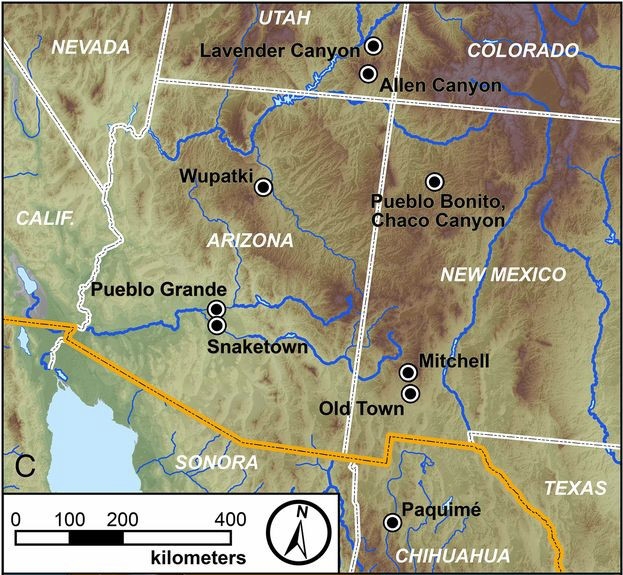Past Events
Interested in Cotsen events? Sign up for our mailing list.Speaker:
Colin Renfrew, Senior Fellow, McDonald Institute for Archaeological Research
Contact Matthew Swanson
Email mswanson@ioa.ucla.edu
Phone
Professor Colin Renfrew, Senior Fellow of the McDonald Institute for Archaeological Research University of Cambridge
The image of mounted nomad warriors from the steppe lands of Russia bringing the Proto-Indo-European language to Europe has been displaced in recent years by new models; the early spread of farming from Anatolia became a preferred explanation for language replacement. Recent work on ancient DNA has, however, brought the steppe theory back into prominence. The Indo-European question remains controversial and will be reviewed - but perhaps not resolved!
The lecture is free to the public. Parking at Lot #4 (Sunset and Westwood) is $12 for 24 hours, hourly parking available.
Contact
Phone 310-206-8934
Speakers:
John Papadopoulos, Professor, Department of Classics, Cotsen Institute of Archaeology, UCLA
Sarah Morris, Professor, Department of Classics, Cotsen Institute of Archaeology, UCLA
Contact Matthew Swanson
Email mswanson@ioa.ucla.edu
Phone
Speaker: Dr. Derek Turner, Connecticut College
Over the last fifteen years or so, philosophers of science have made a lot of progress toward understanding how researchers in fields such as paleontology, geology, and archaeology re-construct the past. One neglected issue, however, is counter-factual reasoning. An historical counterfactual claim has the form: “If condition C had been different at some time in the past, then the downstream outcome O would have been differ-ent.” Counterfactual claims are closely related to the idea that history is contingent—an idea that Stephen Jay Gould made popular in paleontology with his famous thought experiment of replaying the tape of history. However, counterfactual rea-soning remains controversial among historians, some of whom see no value in speculating (for example) about how things would be different if Al Gore had won the presidential election in 2000. One major challenge is explaining what would count as evidence for or against counterfactuals. In this talk, the speaker will (1) provide an overview of some of the relevant philosophical work on the epistemology of historical counter-factuals, and (2) argue that counterfactual reasoning does have a legitimate, if limited role to play in archaeologists’ efforts to reconstruct the past.
Contact Matthew Swanson
Email mswanson@ioa.ucla.edu
Phone
Speaker: Susanna McFadden, Assistant Professor, Fordham University; Getty Museum Scholar
Contact Matthew Swanson
Email mswanson@ioa.ucla.edu
Phone
Featured Speakers: Dr. Marco Brambilla, Prof. Touraj Daryaee, Ms. Kristine Martirosyan-Olshansky, Prof. Bert Vaux
Contact
Phone
Speaker: Dr. Adam Watson, American Museum of Natural History

Contact Matthew Swanson
Email mswanson@ioa.ucla.edu
Phone
Speaker: Dr. Edward Pollard, British Institute in East Africa
Contact Matthew Swanson
Email mswanson@ioa.ucla.edu
Phone
Speaker: Henry Colburn, Postdoctoral Fellow, Getty Museum; Curatorial Fellow, Harvard Art Museums
This study uses identity to examine the experience of Achaemenid Persian rule in Egypt (c. 526-404 BCE). Individuals in Egypt chose the material culture that they believed best suited their identities in the context of votive statues and seals. Some chose traditional Egyptian types, while others drew on a wider array of forms, some of which clearly referred to the Achaemenid royal court. The variation in these choices suggests that contrary to prevailing views there was not a clear divide between subjects and subjugators in Achaemenid Egypt. Rather, different people experienced Achaemenid rule in different ways. The identities examined in this talk attest to a social environment in Egypt in which multiple cultural traditions were valued and employed side by side. Indeed, this finding is consistent with the ecumenical character of Achaemenid ideology, as represented in the sculptural program at Persepolis.
Contact Matthew Swanson
Email mswanson@ioa.ucla.edu
Phone
Speaker: Mauricio Hernandez, Postdoctoral Scholar, Cotsen Institute of Archaeology, UCLA
This presentation shows the results of the preliminary analysis of long-term patterns of nutrition and activity as a result of climatic shift, subsistence changes and increased inter-cultural contact along a prehistoric exchange route across arid mountain passes and oasis towns, linking the Central Eurasian Plains with the Yellow River valley 2,000 years before the founding of the Silk Road trading networks. It is during this period that a climate cooling event began to drive Eurasian groups eastward to establish trade networks in order to obtain agricultural products and raw material for metalworking. Northern Chinese communities in turn benefited from Central Eurasian jade, introduction of new western cultigens, grazing animals, and cultural innovation with Inner Asian motifs. The goal is to investigate whether shifts in subsistence practices and perhaps kinship structure as a result of longterm cultural interaction with Eurasian peoples affected the livelihood and health of populations residing in the intermediate zone, covering the region of eastern Xinjiang, Gansu and eastern Qinghai – both as entire communities, as well as along gender lines.
Contact Matthew Swanson
Email mswanson@ioa.ucla.edu
Phone
- ‹ previous
- 48 of 50
- next ›


